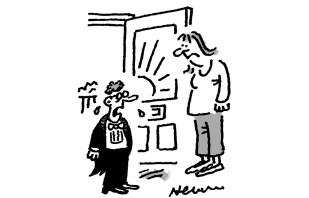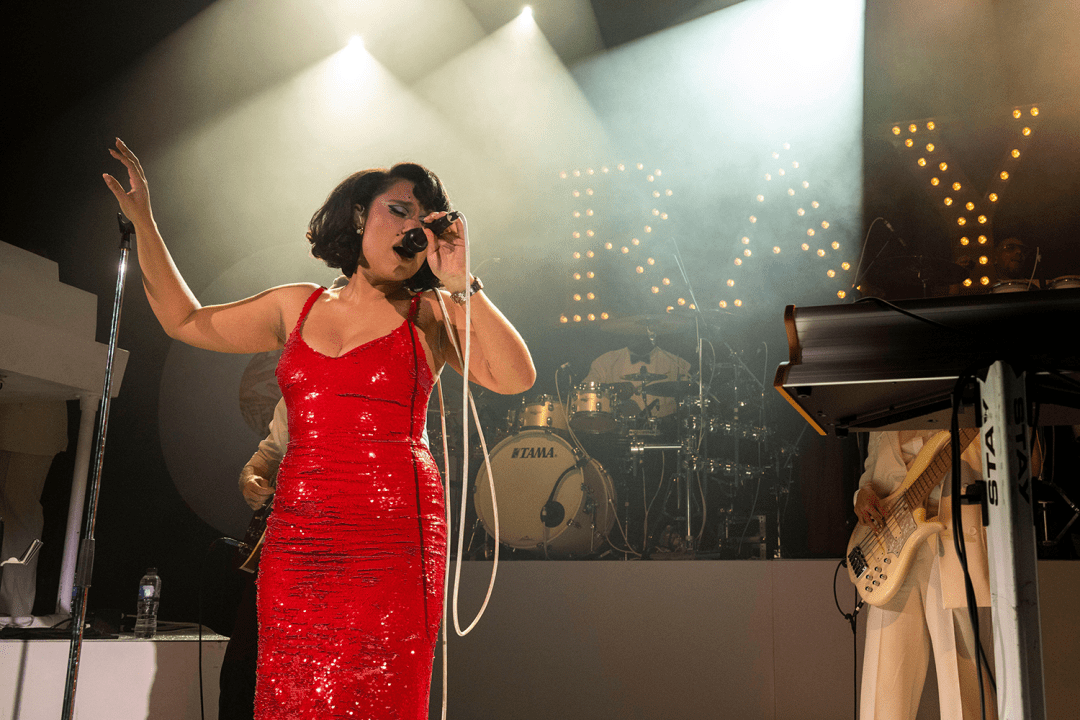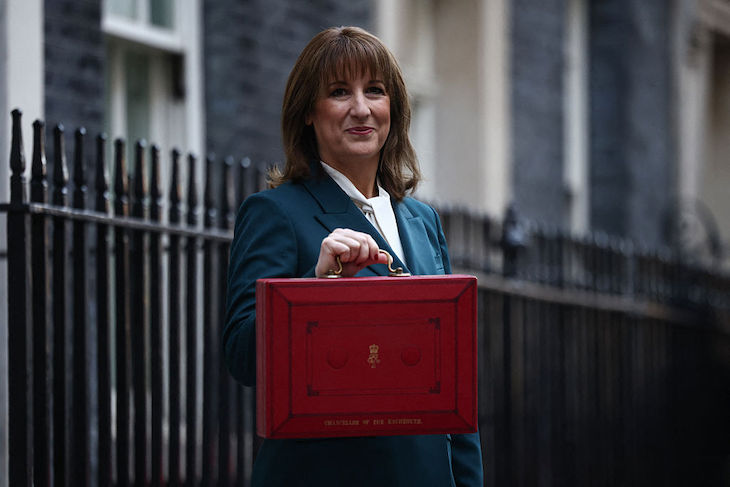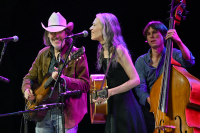There is no better cultural weather vane than pop. It’s not that pop singers possess incredible analytical skills – they don’t. It’s more that it’s in their interests to reflect some prevailing mood. And what people call a vibe shift can often be gleaned by comparing two artists. Take those featured this week: one very much au courant, the other regarded as a searing commentator on 1980s Britain.
It’s a very good album, one for sitting down and listening to rather than standing in a vast shed to hear
Over the past couple of years, Raye – a 26-year-old Londoner – has become rather a star. You may remember that she had a bunch of hit singles early on, but her label showed no interest in releasing an album. So she walked out on Polydor and released My 21st Century Blues herself.
Quite what Polydor were thinking remains a mystery: attractive young women singing relatable songs set to an accessible retro backing is perpetually attractive to listeners, as Adele and Amy Winehouse and scores of others prove.
At the Empire, she certainly boosted the retro side of things – the stage was dressed like an old swing-era nightclub, all in white, with a four-piece horn section, and the band in bow ties. Raye herself was in a plunging red gown, which perhaps afforded the top balcony a view she had not anticipated. The band sounded fantastic – lithe, sinuous and responsive – and Raye’s voice is top notch.
The songs, for all the nostalgic stylings, are very current: she sang about addiction (‘Mary Jane’), sexual harassment (‘Ice Cream Man’), crappy men (‘Oscar Winning Tears’, ‘Black Mascara’), self esteem (‘Genesis’: ‘I Googled why I’m still desperate for validation and sedatives’).
It’s fascinating: the Middle East is on fire; our own government is telling us everything is awful; God only knows what will happen in America. It feels like a world in conflagration, but what truly captivates people right now is watching someone gazing straight at their own navel. There’s nothing wrong with that – navel-gazing is one of pop’s prime functions, and Raye is brilliant at it – but it felt a little odd.
There’s also the issue Raye has become a star before she has the catalogue to support it. To stretch this show to proper gig length, she had to chat before pretty much every song. At length. She has boundless charm, so she got away with it, but it became pretty clear by halfway through that the chat was more pop’s version of what is in sport called running down the clock. Another album, however, and she’ll have a great 90 minutes and she won’t need to babble so much.
Forty or so years ago, you couldn’t move for artists who wanted to let you know their views about the state of the world. Paul Weller, Billy Bragg, Bronski Beat – there were tons of acts who absolutely felt it was their duty to comment on the state of the world, with varying degrees of perspicacity. Among them was Matt Johnson, the sole constant member of The The, who had a series of unlikely hits about how terrible Britain is (‘Heartland’, ‘The Beat(en) Generation’), the perils of organised religion (‘Armageddon Days Are Here (Again)’), and that staple of pop lyrics, the US bombing of Tripoli.
At Ally Pally, there were pacing issues, much like with Raye. The first half of the show was a performance of Ensoulment, the first new The The album for 24 years. It’s a very good album. It’s also one for sitting down and listening to, rather than standing in a vast shed on a Saturday night to hear: it is subdued and melancholy, and really not one to get a large crowd bouncing.

One could marvel at Barrie Cadogan’s fluid guitar playing, and Johnson’s gorgeous baritone, and still wish he had structured the show differently. There were certainly a lot of people loitering around the bars during the first half who joined the hall for the second half, when he went back to his old songs.
There were assorted barbed but good-humoured remarks about Thatcherism, provoking pantomime boos (a well-heeled and mature crowd certainly didn’t look like the Beat(en) Generation), and it made one wonder if maybe the politically committed, commercially successful singer is a thing of the past.
If people are now getting their political rallying calls from social media, then maybe the only politics that will wash in pop is the personal. Enter Raye.








Comments